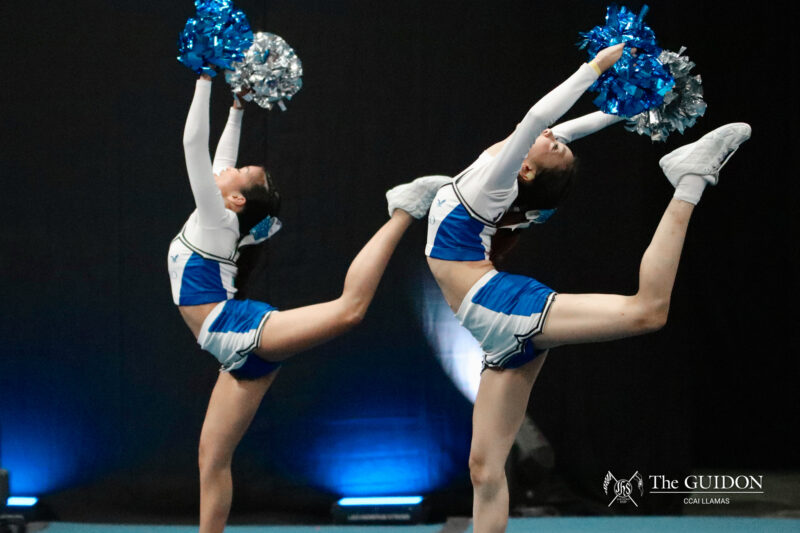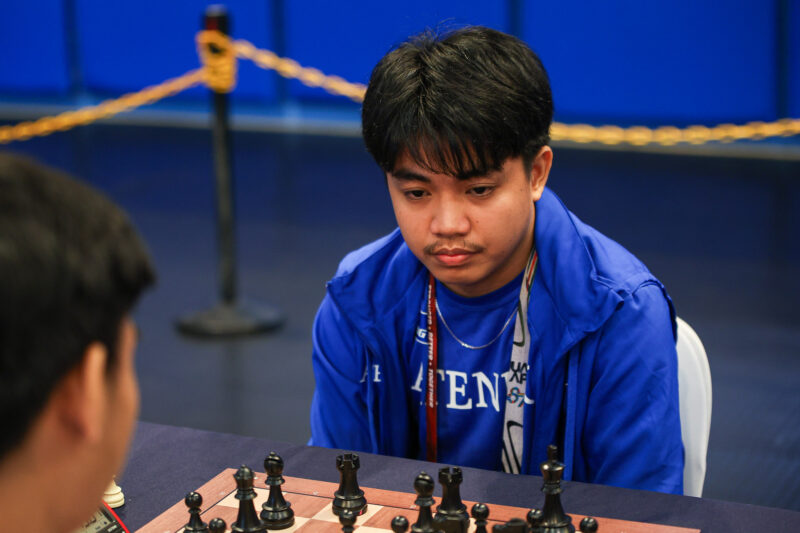SECTORAL REPRESENTATION in campus is integral to the basic rights of all students. Last August, the Sanggunian announced its plans to inaugurate another commission for the representation of a minority sector on campus, this time for Persons With Special Needs (PWSNs). The Commission on Persons with Special Needs Inclusion (CPSNI) aims to champion the concerns of individuals diagnosed with neurological, physical, or psychological conditions. CPSNI is poised to join student organizations such as the Ateneo Special Education Society (SPEED) in advocating for the empowerment and representation of PWSNs on campus.
SPEED President Mary Chow notes that despite the organization’s advocacy efforts in the past 25 years, the struggles of the PWSN community mostly remain unnoticed by the public. “We’ve created many projects and initiatives for our students with special needs to help them adjust to the college culture. However, it can be difficult at times to compete with 55+ other organizations in Ateneo, to increase the awareness and attention for our advocacy,” says Chow.
The planned institution of CPSNI and the University’s collaborations with the Institute on Disability and Public Policy indicate that the University supports PWSN-inclusion. However, most of the adjustments, facilities, and equipment installed on campus are meant to accommodate only certain physical and sensory disabilities. On the other hand, students with psychosocial and neurological conditions must coordinate closely with University offices and services for their needs to be met.
More than additional campus initiatives to accommodate PWSNs’ specific needs, the PWSN sector still needs platforms to voice their sector-specific concerns. In addition to awareness programs for the sector’s apprehensions, true inclusion for PWSNs within the community involves empowering them to claim leadership positions that allow them to serve as their sector’s voice.
What it has, what it can
University offices do their part to assist PWSN students by monitoring and accommodating their needs through specialized support groups and faculty sensitivity training. According to Assistant to the Director for the Office of Student Services Estrella Paulino, the Loyola Schools Office of Guidance and Counselling (LSOGC) collaborates with the Loyola Schools Office for Health Services and the Office of Academic Affairs to assist PWSN students with their specific needs upon enrollment into the University. Director of the Office for Student Services (OSS) Cholo Mallillin affirms this, specifying that the LSOGC and LSOHS are “equipped” to assist all PWSN students who properly declare their conditions through the required Health Report once they are admitted into the school.
Mallillin further notes that the Ateneo has its own established University Wellness Council (UWC), which is tasked with “[creating] policies, protocols and services” for the PWSN sector within the community. In addition to helping coordinate the access of PWSN students to on-campus mental health institutions such as the Bulatao Psychology Services Center and the Emmaus Psycho-Spiritual Center, UWC has also formed a Critical Attention Required (CARe) Team composed of the LSOGC, LSOHS, and OSS faculty members. “Under the auspices of the Associate Dean for Student and Administrative Services, [CARe is tasked with] screening, educating [campus] caregivers [for PWSN students in need], [and] intervention for emergency incidents and continued care for our PWSN students,” says Mallillin.
For the rest of their stay in the Loyola Schools, certified PWSN students are informed by the LSOGC on the availability status of active campus support groups such as SPEED. Other than establishing social groups for PWSN students on campus, SPEED also trains its student volunteers to become mentors for PWSNs who are part of SPEED’s partner organizations outside of the University.
For all of these University community programs designed to assist PWSN students, Pia Cabañero (1 AB IS), who has autism spectrum disorder, asserts that these initiatives must be prepared to accommodate the needs of PWSN students on a case-by-case basis, as neurological and psychosocial conditions exist across a spectrum.
The claws of pity
In spite of the University community’s concrete attempts in addressing the needs of PWSN students, members of the sector still feel apprehensive about disclosing their conditions and engaging themselves with such programs. Cabañero shares that many members of the sector find it difficult to willingly certify their status of disability. “They’re afraid of going public [with their disabilities] since they think they’ll be [pitied],” she says.
Cabañero does acknowledge that the University community has been accommodating to her ASD as they check up on her when she is distressed. “When I make any tantrums, faculty and students alike ask me if I’m alright,” she says.“People here just want to make sure that I’m doing fine.”
However, she says that the community’s approach towards PWSNs could still be improved. Despite SPEED’s efforts to acquaint people with the conditions of PWSNs, students with special needs are still apprehensive about experiencing social exclusion from the rest of the student community. Cabañero stresses the need for the community at large to practice empathy for PWSN students, rather than rigid awareness of the various conditions which may set these students apart. “They should feel a sense of acceptance. We don’t need people to identify that we’re differently-abled, what we need are activities that foster closeness with the PWSN community on campus,” she states.
Regarding the newly-formed CPSNI, Cabañero hopes that this will serve as an opportunity for PWSN students to become leaders that will express the sector’s needs and empower fellow PWSNs to voice their struggles. “It feels very appreciative to see this representation coming in because it gives an opportunity for PWSNs to have a presence on campus and push for inclusion,” she says.
The urgency of awareness
To further strengthen PWSN inclusion, Chow says that the Ateneo could still push for education about the sector. For Chow, the University still lacks professionals who are well-trained enough to inform the community about the PWSN sector’s aspirations and concerns.
Paulino further expounded on the need for more educational drives for PWSNs, providing her own suggestions for such initiatives like encouraging the school to set up seminars for teachers and electives that show students how to properly assist distressed PWSNs.
Meanwhile, Mallillin noted that pre-existing mental wellness programs implemented by the University must be “recognized and appreciated more,” for their validity in addressing the psychosocial needs of Loyola Schools students. He cited the examples of the Introduction to Ateneo Culture and Traditions program’s self-care, social skills, and stress management modules as capable of helping the community be aware of their own mental health, and the particular needs of their fellow PWSN students.
Higher and further
While the University does have initiatives from both administration offices and student organizations to address the needs of the PWSN sector, the assistance that these projects provide function on the same variations of mentorship structures. Programs such as SPEED’s “splover-splovee” system and the administration’s CARe initiatives focus on coaching and assisting PWSNs with the development of their social skills and needs. Though these projects do perform the critical tasks of guiding PWSN students to develop their own capabilities, there still exists a gap between PWSNs becoming empowered individuals, and empowered as a sector in the University community.
It is critical that PWSN students are given opportunities to not only interact socially with their fellow students as peers, but politically as representatives of their own sectoral identity. In addition to granting leadership and member development roles to PWSN students within community groups such as the Sanggunian, projects such as kapihans may be instituted to organize the sector of students with disabilities. As an institution that aims to showcase the excellence of its students, Ateneo may likewise consider establishing electives and modules for interested members of its PWSN student sector to learn non-academic skills, such as creative expression through the visual arts and paralympic sports.
As with the rest of the University’s community, the possibilities for the development of the PWSN sector as students and individuals remain boundless. Through further collaboration between the University’s offices, student organizations, and PWSN student representatives themselves, inclusive student education and development can become the norm for the Ateneo, rather than an exception to be praised.







